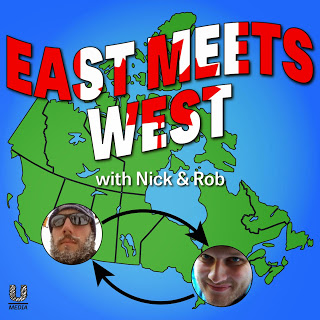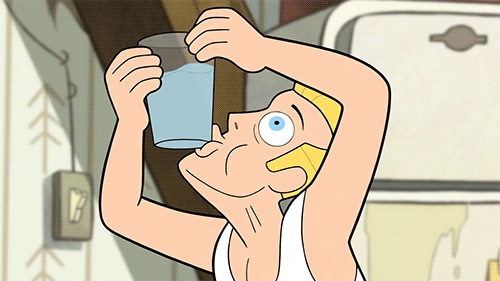I have written a LOT ragging on the various things I hate about Facebook, and though some of my concerns have been addressed over the years, there is still a lot I just really don’t like about the social network. Today, I’m going to detail what has always been one of my biggest nuisances with the website, and try to articulate exactly why it’s so bad, and what they can do about it.
Part of me knows that the biggest “problem” with Facebook, the one I’m going to describe below, isn’t actually a problem with Facebook. The problem lies with us, the idiotic users who are using it (or not using it) in ways its designers never expected. But as any good engineer knows, anticipating your users’ needs and interactions is arguably even more important than creating an internally consistent and compelling product.
 |
| Pictured: Facebook Users |
To put it simply, Facebook exists to make money for itself. There’s nothing inherently wrong with that, it’s a business after all, but in that pursuit the company ends up making decisions that are openly hostile to new and experienced users. I think this hurts the platform and actually ends up meaning that people will use Facebook less.
When you open Facebook, you’re presented with a timeline called the News Feed, a stack of cards that can show status updates, photos, videos, links to websites, blog posts, events, pages, or crucially, advertisements. When the social network was just getting started, the thing that became the News Feed was essentially a linear timeline of the things people were saying to one another. You couldn’t really “miss” an update because everything was in order and scrolling more, or clicking through to the next page, would simply show you the next item chronologically.
Today, that timeline has been completely distorted by Facebook trying to make money for itself. In case you haven’t looked on the right side of the Facebook website lately, there are ads all over it. Facebook is fundamentally an advertising network now, because all semblance of time and chronology is lost when you are on the website today. Now, I’m not saying I mind ads on the side of my timeline, or even in between stories from my friends or sites I follow. I don’t even mind Facebook highlighting stories it thinks I might want to see from friends its algorithm considers close to me.
The problem I have with how Facebook operates is that it plays fast and loose with the updates my friends, family and acquaintances actually want me to see. This is never more painfully obvious when I am talking to two people, and one of them tells the other about something they posted on Facebook. As is so often the case, I frequently haven’t seen the story in question, even though historically I have enjoyed roughly 95% of the stories that those two friends have shared with one another.
This leads me to one of the problems with Facebook’s treatment of relationships between humans. Even if you go through the effort to catalogue your friendships, and put your friends into groups, becomes obsolete shortly after you finish the initial grouping. Our relationships are in a constant state of flux, and our connections are constantly changing and increasing in number. No human alive with a job and a life could possibly keep up with fine adjustments of their friends list in order to actually monitor what they see first on Facebook, and since many people can end up posting several things to the network every day, there are just too many stories to realistically see all of them.
When you make a new friend and add them to Facebook, the site or app could easily prompt you to categorize them as a friend, acquaintance, co-worker, etc., and perhaps even ask you if you want to see all, most, or none of their updates. This would be a completely voluntary grouping procedure, but it would be really helpful to be able to keep your Facebook friends organized.
One of the results of the network as it is today is a phenomenon called a ‘filter bubble’. This is when you spend so much time communicating with a subset of people that you tend to fall into a group where the views of the people in it all tend to be the same or very similar. As an example, if you’re friends with a bunch of Conservatives on Facebook, over time you will see more and more conservative viewpoints and posts. Eventually, you can start to develop a bubble around you, and more liberal viewpoints will stop showing up in your feed, even though those viewpoints still exist around you.
Now, many people may actually WANT this, as most people don’t want their viewpoints challenged, but when this happens totally invisibly to the user, it would be easy to start to think that maybe other viewpoints just don’t exist, or are the extreme minority of the overall culture. Unfortunately, at the moment, it seems like Facebook’s algorithms tend to favour this kind of extremist and filtering, and most people aren’t aware this is happening.
Using a linear timeline (something that is not available on Facebook’s main site by default) and exposing users to the built-in grouping tools would go a long way towards removing some of the friction people have when seeing ALL the things their Facebook friends post, as well as making it much more transparent to users that this kind of filtering and sorting of posts is happening. Facebook will continue to make money off its ads, and off Facebook Pages paying to show their posts in others’ feeds, but I think all parties will benefit if everyone is aware of what’s actually going on.
 This weekend, we had an international podcast on East Meets West. Matt “Tom” Staroste joined us from Australia to discuss the election that’s upon us today. And while you might not have time to listen to the whole 2 hour podcast today before polls close, I really encourage you to listen to Matt’s and Nick’s 3-4 minute endorsements of the NDP and Liberal parties at the very end of the episode. It’s how I decided my vote, and it’s really worth your ears.
This weekend, we had an international podcast on East Meets West. Matt “Tom” Staroste joined us from Australia to discuss the election that’s upon us today. And while you might not have time to listen to the whole 2 hour podcast today before polls close, I really encourage you to listen to Matt’s and Nick’s 3-4 minute endorsements of the NDP and Liberal parties at the very end of the episode. It’s how I decided my vote, and it’s really worth your ears.



